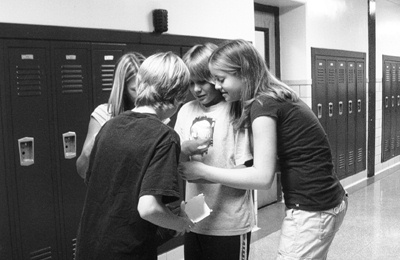All Nonfiction
- Bullying
- Books
- Academic
- Author Interviews
- Celebrity interviews
- College Articles
- College Essays
- Educator of the Year
- Heroes
- Interviews
- Memoir
- Personal Experience
- Sports
- Travel & Culture
All Opinions
- Bullying
- Current Events / Politics
- Discrimination
- Drugs / Alcohol / Smoking
- Entertainment / Celebrities
- Environment
- Love / Relationships
- Movies / Music / TV
- Pop Culture / Trends
- School / College
- Social Issues / Civics
- Spirituality / Religion
- Sports / Hobbies
All Hot Topics
- Bullying
- Community Service
- Environment
- Health
- Letters to the Editor
- Pride & Prejudice
- What Matters
- Back
Summer Guide
- Program Links
- Program Reviews
- Back
College Guide
- College Links
- College Reviews
- College Essays
- College Articles
- Back
Survival of the Most Popular MAG
Popular: it’s a word that lingers in the minds of kids across the globe. It’s a word that provokes images of success and acceptance, comfort and inclusion. Traveling abroad to a new school in Scotland for my parents’ sabbatical, I aspired to be the kid who fits in. As an eight-year-old, I wanted, more than anything in the world, to be popular since I firmly believed survival belonged to the most popular.
So, on that first day of school, I tied my hair with the prettiest of ribbons, put on my perfectly ironed uniform, and slipped on my sparkly flats. Although fear overwhelmed my body, I was ready to make friends. I felt ready to become popular. Then, at lunch on the first day, I met Anya. She was the kid with unkempt, red hair whose shoes weren’t sparkly and whose uniform wasn’t ironed. She sat alone at a table, munching on her sandwich, with a book in her hands. Surrounded by the cacophony of noises and intimidated by the table of “cool kids,” I stood in the middle of the cafeteria, head whirling. Noticing I hadn’t been invited to the table to which my eyes were glued, Anya flashed me a crooked grin and motioned to the seat next to her.
“You’re new, right?” she asked me, her voice sweet like honey. “Come sit with me!”
I remember hesitating. The omnipresent, nagging voice in my head was warning me not to accept her offer. Popular, popular, popular, it told me repeatedly. Still, I noted that we were five minutes through lunch, and no one but she had welcomed me – the confused, misinformed American. Gratitude and delight flooded through me: I had found my seat in the most unexpected of places.
Feeling relieved, I took my sandwich and my mini juice carton and I sat beside this girl. She introduced herself as Anya, and for the next few minutes, we talked and laughed. She showed me her book, entitled: Bridge to Terabithia; it was one of my favorite novels too, and we discussed it throughout lunch. When the bell rang signaling the end of the period, I was surprised by how reluctant I was to leave.
“You should sit here tomorrow. I’ll tell you the people you should look out for at
this school.” Anya laughed, motioning to the table I had hoped to sit at earlier. “They can be mean.” Her face fell, and I looked down at my tightly clenched hands, guilty. As we parted ways, she handed me a safety pin with two mini beads, telling me it was a friendship pin. The violet bead was me, and the green bead was her.
“Friends forever,” she whispered.
From that day forward, I wore my ribbons loose and my uniform wrinkled, and Anya unveiled to me the methods to avoiding the mean students. I also made sure to secure the friendship pin to my dress every day. It was that small token of friendship, of kindness, that helped me to survive my often scary days at the foreign St. George’s Elementary. When I was the last to be picked for a game of netball – a British sport unfamiliar to me – I looked down at the pin and was able to hold my head high. When the assignment I wrote for my French class came back with a discouraging score, I glanced at the pin and calmly opened my French book to study. Even when I made a piercing sound on the recorder in music class, I thought of the pin and kept on playing. At the end of the term when I was due to go back home to America, I handed Anya the friendship pin I made for her. And I whispered two simple words: thank you.
During those four months I spent in Scotland, I learned that kindness is a strength rather than a weakness. With a kind, positive attitude, I believe you can travel great distances, fly to great heights. We persevere not in competition for popularity, but in the compassion of others. Although Anya and I lost contact years ago, to this day I believe you don’t need to be “cool” or “popular” to survive. Survival is of the kindest. Let’s sink or swim together.

Similar Articles
JOIN THE DISCUSSION
This article has 3 comments.

6 articles 0 photos 10 comments
Favorite Quote:
Silly girl,<br /> your different was your beautiful<br /> all along<br /> <br /> <br /> <br /> -Atticus